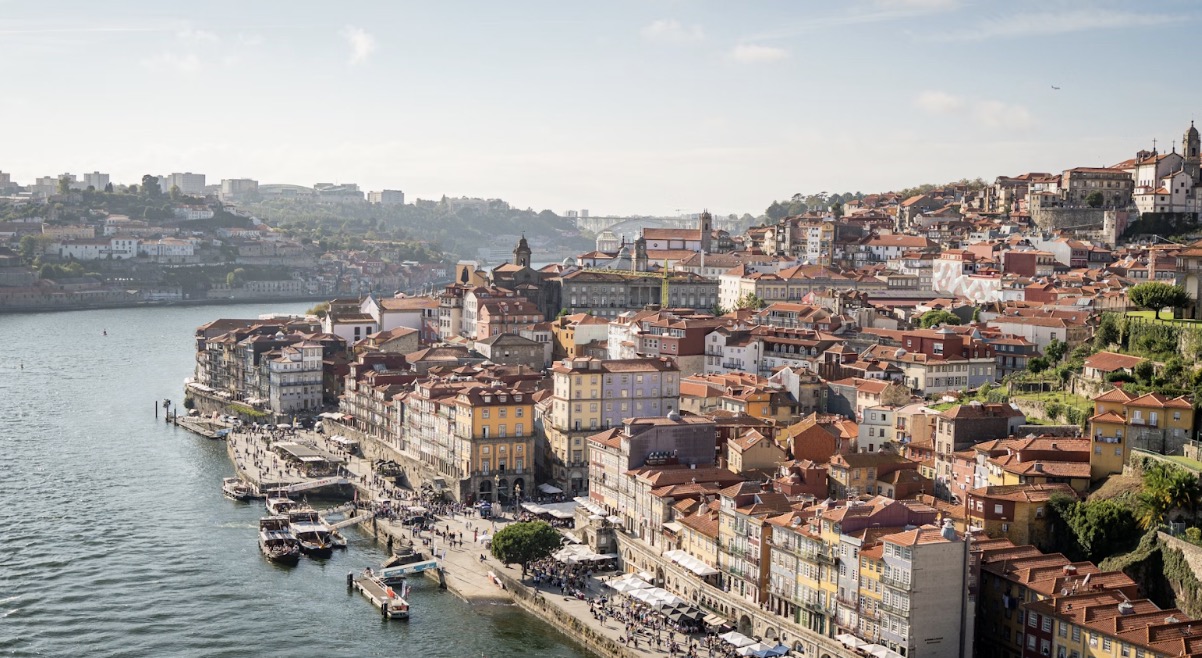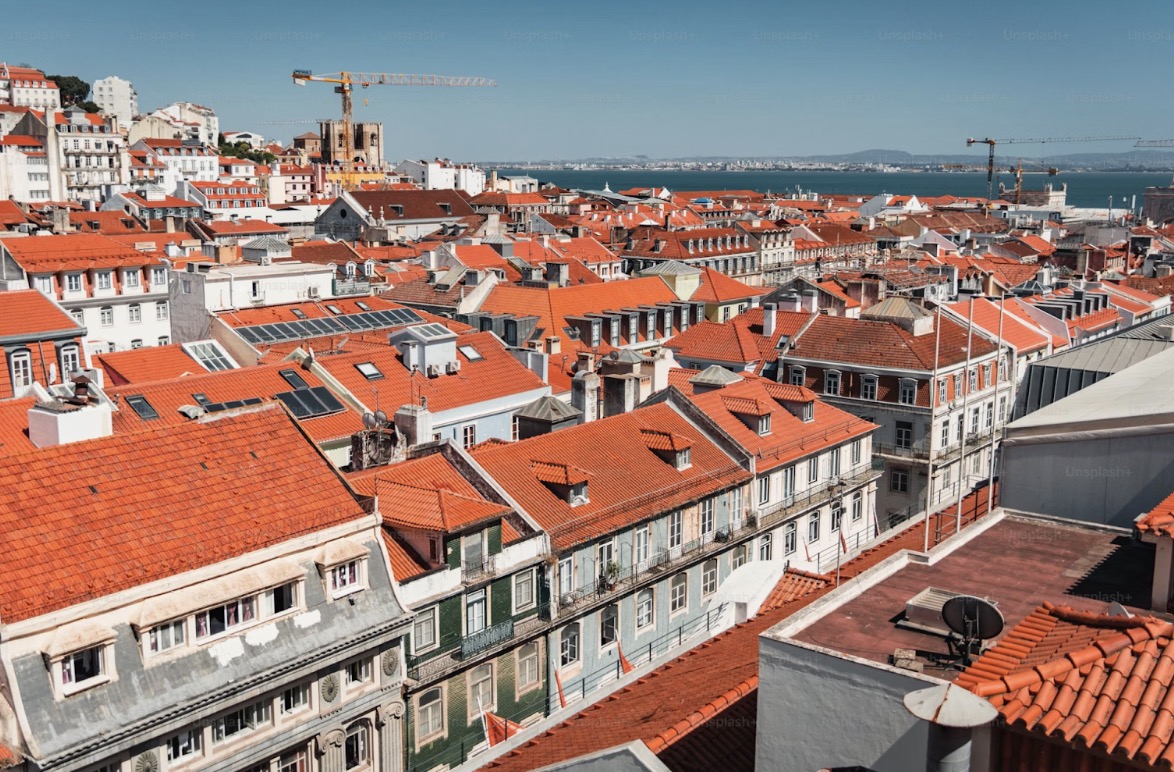Portugal, a land where the efficiency of high-speed trains meets the charm of ancient customs, offers a unique journey through its scenic vistas and rich cultural heritage. Embarking on the Porto to Lisbon train, travelers are taken on an enchanting ride, weaving through the heart of Portugal’s varied landscapes and traditions.

In Porto, the journey begins with a step back in time. This northern city, renowned for its port wine and stately bridges, boasts a labyrinthine old town where history breathes through the azulejo-tiled buildings and baroque churches. The Ribeira District, pulsating with life by the Douro River, offers a picturesque tableau of Portugal’s past.
As you depart Porto aboard the train, the Portuguese countryside unfolds like a vibrant tapestry. The journey to Lisbon is a showcase of the country’s natural beauty, passing through the lush vineyards of the Douro Valley and the undulating hills of central Portugal.
Lisbon, Portugal’s captivating capital, welcomes visitors with a harmonious blend of old-world charm and contemporary dynamism. As you wander through the city, the contrast between the timeless and the modern becomes beautifully apparent. The historic Alfama district, with its narrow, winding streets and traditional Fado houses, offers a glimpse into Lisbon’s soulful past. Here, the melancholic tunes of Fado music, a UNESCO-listed intangible cultural heritage, resonate through the ancient walls, telling stories of the sea, love, and longing.
Moving from the historic to the hip, the Bairro Alto district presents a different facet of Lisbon. Known for its bohemian vibe, this area comes alive at night with a plethora of trendy bars,
restaurants, and clubs, making it a hotspot for nightlife enthusiasts. The streets buzz with energy as locals and tourists alike converge to enjoy the vibrant atmosphere.
But Lisbon’s cultural tapestry is even more intricate. The city is also a hub for contemporary arts, boasting an array of modern art galleries and design studios that showcase the work of both established and emerging Portuguese artists. These spaces, often housed in rejuvenated buildings that blend historical architecture with cutting-edge design, reflect Lisbon’s flair for fusing the old with the new.

Moreover, Lisbon’s culinary scene is a testament to its cosmopolitan character. From high-end dining establishments offering innovative Portuguese cuisine to cozy family-run taverns serving traditional dishes, the city caters to all palates. The Time Out Market, a food hall located in the Mercado da Ribeira, is a culinary haven where visitors can savor an array of Portuguese and international flavors under one roof.
In summary, Lisbon is a city that seamlessly intertwines its rich history with a vibrant, forward-looking spirit. From the soul-stirring melodies of Fado in Alfama to the lively streets of Bairro Alto and the artistic innovations spread throughout, Lisbon stands as a dynamic European capital, always ready to enchant and inspire its visitors.
Beyond Lisbon, the story of Portugal continues along its sun-drenched coastline. The beaches of Cascais and Estoril, easily accessible by train, offer golden sands and a taste of the Portuguese Riviera. These coastal towns, with their relaxed atmosphere and stunning sea views, are perfect for unwinding after exploring the capital.
Venturing further south, the Algarve region awaits with its dramatic cliffs, secluded coves, and warm waters. This southernmost part of Portugal is a paradise for beach lovers, surfers, and those seeking a serene escape in nature. The Algarve’s unique blend of Moorish and Portuguese influences is evident in its architecture, cuisine, and artisanal crafts.
Inland, the heart of Portugal beats in the Alentejo region. Known for its rolling plains, cork forests, and historic towns like Évora and Monsaraz, Alentejo offers a serene retreat from the coastal buzz. The region is also famed for its wine, olive oil, and rich culinary traditions, making it a must-visit for food enthusiasts.
Returning to the theme of modernity, Portugal’s commitment to sustainable development is evident in its cities. Lisbon and Porto are becoming increasingly green, with efforts towards renewable energy, eco-friendly public transport, and urban green spaces. This forward-thinking approach is harmoniously integrated with the preservation of historical sites and traditions, showcasing Portugal as a model of balancing progress with heritage.
As your Portuguese sojourn concludes, the memories of traversing from Porto to Lisbon, exploring sun-soaked shores and timeless traditions, leave a lasting impression. Portugal’s allure lies in this seamless blend of old and new, where every corner offers a story, and every experience is a bridge between the past and the future.
In summary, Portugal is more than just a destination; it’s a journey through time and culture. From the speed and convenience of its trains to the timeless beauty of its landscapes and traditions, Portugal stands as a testament to the enduring spirit of exploration and discovery. It’s a place where every traveler can find something to cherish, from the vibrant streets of its cities to the tranquil vistas of its countryside.


0 Comments